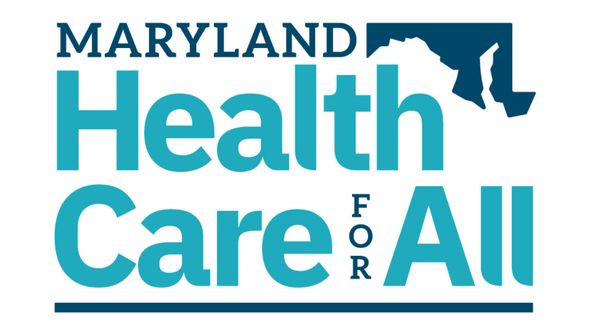delmarvanow
Jeremy Cox
July 17, 2017
The symptoms came out of nowhere.
Chris Sabas had been accepted at a seminary in Canada to become ordained in the Anglican Church when she began experiencing myriad neurological problems. The numbness, involuntary muscle movement and vertigo were so debilitating that the 43-year-old was forced to abandon her plans and move in with her mother in Salisbury.
Three years later, Sabas feels blindsided again. She fears that if Republicans have their way in Congress, she might lose access to her health insurance — and with it, any hope of recovering from the mysterious illness.
“It’s been a lot swirling around me, and now I have to deal with this,” she said.
Sabas is one of 1.3 million people in Maryland insured by Medicaid, the state and federal health insurance program of last resort for the poor and disabled.
Thousands of Medicaid recipients could lose their coverage in the Free State under a health insurance bill approved by the House and a separate measure being debated in the Senate.
The GOP’s effort to repeal and replace the landmark 2010 Affordable Care Act, though, has encountered steep political opposition, including some from within Republican ranks. After two more Republican senators defected from the bill late Monday, the future of the legislation was unclear.
For its part, the embattled GOP bill slashes federal spending by about $1 billion over a decade, with its deepest cuts directed at Medicaid, according to the nonpartisan Congressional Budget Office. By 2026, the bill is expected to reduce Medicaid spending by 26 percent.
As a result, enrollment in the program would drop by 16 percent over that span, congressional researchers said. In Maryland, the left-leaning Center for American Progress estimates that more than 227,000 people could lose their insurance under the Senate bill, including 164,000 Medicaid recipients.
As high-stakes negotiations continue in Washington, Medicaid advocates are gathering Wednesday in Salisbury to make a stand on behalf of the Maryland residents it covers.
The event is designed to highlight the benefits of the five-decade-old program, said Vincent DeMarco, president of the Maryland Citizens’ Health Initiative, the group organizing the forum. It is the second in a series of rallies the group is hosting in each of Maryland’s eight Congressional districts.
But it is the only Maryland district whose House representative voted in favor of that chamber’s repeal-and-replace proposal in May. That fact is not lost on DeMarco and other advocates.
When reached for comment, Harris’ office issued a statement on Monday, saying the House-approved bill and the Senate bill “both allow Medicaid spending to increase by 50 percent over the next 10 years. The Congressional Budget Office was inaccurate in its estimates on the coverage Obamacare would provide, and it is inaccurate now.”
One of the most notable provisions in 2010’s reform was its Medicaid expansion. It raised the income limit on Medicaid from 100 percent of the federal poverty level to 133 percent, with the federal government footing 90 percent of the cost. More than 30 states approved the expansion, including Maryland.
The GOP bills would reduce the federal share over time back to its original level of about 50 percent. In 2018, Maryland’s Department of Legislative Services estimates the state would lose $1.2 billion in Medicaid funding alone.
“The state simply can’t raise the amount of money the federal government can raise to make these programs work,” DeMarco said.
Recipients like Sabas will be the first to bear the burden, he said.
Sabas said she had never signed up for any kind of public assistance before her health problems started. Doctors have given her a variety of diagnoses, ranging from multiple sclerosis to Huntington’s disease, but nothing has quite matched her symptoms, she said.
She has been unable to work, so she would have no health coverage if not for Medicaid, she said.
“Am I going to be one of the countless many who are going to be left out in the cold?” she asked. “It’s not like I don’t want to work. I do want to work. But working in the traditional, full-time sense is just not possible now.”
Across town, Joana Weaver also wonders whether her coverage will stay intact.
She teaches English as a second language, but the contractual basis of her work means she turns to Medicaid for insurance. Since she earns too much money to qualify for traditional Medicaid, Weaver, who has cerebral palsy, gets coverage through Maryland’s special carve-out for people with disabilities.
If state lawmakers are forced to cut Medicaid spending, she worries her program may be among them.
“I’m scared to death,” said Weaver, 49, adding that she would probably end up having to quit working and go on traditional Medicaid. But, she added, “if you want me off of public assistance like food stamps and energy assistance, you have to keep me on Medicaid because that’s the only thing that keeps me working.”



